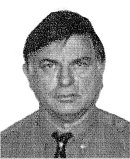|
Plenary
Lecture
Generalized Differential-Difference Equations to
Economic Dynamics and Control

Professor Andre A. Keller
CLERSE- Centre Lillois d'Etudes et de Recherches
Sociologiques et Economiques UMR/CNRS 8019
Universite de Lille 1 Sciences et Technologies
Cite Scientifique 59655 Villeneuve d'Ascq Cedex FRANCE
E-mail:
andre.keller@univ-lille.fr
Abstract: Dynamic economic
models generally consists in
difference or differential
behavioral equations. Several
arguments are in favor of
continuous time systems: the
multiplicity of decisions
overlapping in time, a more
adequate formulation of market
adjustments and distributed lag
processes, the properties of
estimators, etc. The type of
dynamic equations also refer to
historical and practical reasons.
In some cases of the economic
dynamics, delay differential
equations (DDEs) may be more
suitable to a wide range of
economic models. The dynamics of
the early Kalecki's business cycle
model is represented by a linear
first-order DDE with constant
coefficients, in the capital
stock. Such a DDE, with constant
or flexible lags, also occurs in
the continuous time Solow's
vintage capital growth model. This
is due to the heterogeneity of
goods and assets. In some
qualitative study, the time delay
is replaced by the Taylor series
for a sufficiently small delay and
a not too large higher-order
derivative. DDEs with constant
lags may be preferably solved by
using Laplace transforms. Numerous
techniques are also proposed for
the solutions of DDEs, like the
inverse scattering method, the
Jacobian elliptic function method,
numerical techniques, the
differential transform method,
etc. This study uses a block
diagram approach with help of the
software MATHEMATICA 6.0., and its
specialized packages for signal
processing, such as the "Control
System Professional".
Brief Biography of the Speaker:
At present, Professor Andre A.
Keller (66) is an associate
researcher in mathematical
economics with application to
environment problems and related
modeling techniques at the CLERS/E
a research unit of the French
Centre National de le Recherche
Scientifique (CNRS) at the
University Lille 1, for Sciences
and Technologies. Prof. Keller
received his PhD in Economics
(Operations Research) in 1977 from
the Universite de Paris. He taught
applied mathematics (linear and
nonlinear optimization techniques)
and econometrics, microeconomics,
theory of games and dynamic
macroeconomic analysis. Since
1970, he has been chief
econometrician at the Centre
d'Observation Economique of the
Chamber of Commerce & Industry of
Paris. His experience includes
macroeconomic, regional studies
and commercial statistics:
building econometric systems for
short run analysis, analyzing
policy impacts and forecasting,
monthly time-series treatments. At
the same time, he contributed to
teaching microeconomics with the
Universite de Paris. Since 1980,
he has been Associate Professor at
the Universite de Paris and
Researcher in a research unit of
the CNRS. His experience centers
are on building and analyzing
large scale macro-econometric
models, as well as forecasting.
Since 1985, his research interest
has concentrated on high frequency
time-series modeling with
application to the foreign
exchange market : spectral
properties of usual filters,
automatic selection of ARIMA
models, efficiency tests. Since
1990, Prof. Keller's research is
centered on discrete mathematics
(graph theory), stochastic
differential games and
tournaments, circuit theory of
systems, dynamics and optimal
control in economic modeling under
uncertainties and in a fuzzy
environment. Prof. Andre A.
Keller's publications consist in
writing articles and co-authoring
books. The articles in scientific
reviews are on model building with
application to macroeconomics and
international finance. The books
chapters are on semi-reduced forms
of econometric models (Martinus
Nijhoff, 1984), econometrics of
technical change (Springer and
IIASA, 1989), advanced time-series
analysis (Woodhead- Faulkner),
circuits enumeration in digraphs
(Springer, 2008), stochastic
differential games (Nova Science,
2009), optimal fuzzy control
(InTech, 2009), circuit analysis
(Nova Science, forthcoming 2010).
|
